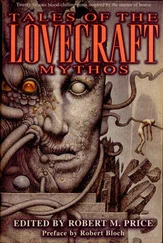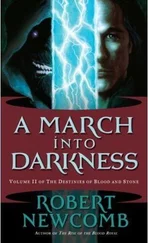Robert Pirsig - Lila. An Inquiry Into Morals
Здесь есть возможность читать онлайн «Robert Pirsig - Lila. An Inquiry Into Morals» весь текст электронной книги совершенно бесплатно (целиком полную версию без сокращений). В некоторых случаях можно слушать аудио, скачать через торрент в формате fb2 и присутствует краткое содержание. Жанр: Современная проза, на английском языке. Описание произведения, (предисловие) а так же отзывы посетителей доступны на портале библиотеки ЛибКат.
- Название:Lila. An Inquiry Into Morals
- Автор:
- Жанр:
- Год:неизвестен
- ISBN:нет данных
- Рейтинг книги:3 / 5. Голосов: 1
-
Избранное:Добавить в избранное
- Отзывы:
-
Ваша оценка:
- 60
- 1
- 2
- 3
- 4
- 5
Lila. An Inquiry Into Morals: краткое содержание, описание и аннотация
Предлагаем к чтению аннотацию, описание, краткое содержание или предисловие (зависит от того, что написал сам автор книги «Lila. An Inquiry Into Morals»). Если вы не нашли необходимую информацию о книге — напишите в комментариях, мы постараемся отыскать её.
Lila. An Inquiry Into Morals — читать онлайн бесплатно полную книгу (весь текст) целиком
Ниже представлен текст книги, разбитый по страницам. Система сохранения места последней прочитанной страницы, позволяет с удобством читать онлайн бесплатно книгу «Lila. An Inquiry Into Morals», без необходимости каждый раз заново искать на чём Вы остановились. Поставьте закладку, и сможете в любой момент перейти на страницу, на которой закончили чтение.
Интервал:
Закладка:
Rta . It was a Sanskrit word, and Phædrus remembered what it meant: Rta was the cosmic order of things. Then he remembered he had read that the Sanskrit language was considered the most faithful to the Proto-Indo-European root, probably because the linguistic patterns had been so carefully preserved by the Hindu priests.
Rta came surrounded by a memory of bright chalky tan walls in a classroom filled with sun. At the head of the classroom, Mr Mukerjee, a perspiring dhoti-clad brahmin was drilling dozens of ancient Sanskrit words into the assembled students' heads — advaita, maya, avidya, brahman, atman, prajna, samkhya, visistadvaita, Rg-Veda, upanisad, darsana, dhyana, nyaya — on and on. He introduced them day after day, each in turn with a little smile that promised hundreds more to come.
At Phædrus' worn wooden desk near the wall in back of the classroom, he had sat sweaty and annoyed by buzzing flies. The heat and light and flies came and went freely through openings in a far wall which had no window-glass because in India you don’t need it. His notebook was damp where his hand had rested. His pen wouldn’t write on the damp spot, so he had to write around it. When he turned the page he found the damp had gotten through to the next page too.
In that heat it was agony to remember what all the words were supposed to mean — ajiva, moksa, kama, ahimsa, susupti, bhakti, samsara. They passed by his mind like clouds and disappeared. Through the openings in the wall he could see real clouds — giant monsoon clouds towering thousands of feet up — and white-humped Sindhi cows grazing below.
He thought he’d forgotten all those words years ago, but now here was rta, back again, Rta , from the oldest portion of the Rg Veda , which was the oldest known writing of the Indo-Aryan language. The sun god, Surya , began his chariot ride across the heavens from the abode of rta. Varuna , the god for whom the city in which Phædrus was studying was named, was the chief support of rta.
Varuna was omniscient and was described as ever witnessing the truth and falsehood of men — as being the third whenever two plot in secret. He was essentially a god of righteousness and a guardian of all that is worthy and good. The texts had said that the distinctive feature of Varuna was his unswerving adherence to high principles. Later he was overshadowed by Indra who was a thunder god and destroyer of the enemies of the Indo-Aryans. But all the gods were conceived as guardians of rta, willing the right and making sure it was carried out.
One of Phædrus' old school texts, written by M. Hiriyanna, contained a good summary: Rta , which etymologically stands for "course" originally meant "cosmic order," the maintenance of which was the purpose of all the gods; and later it also came to mean "right," so that the gods were conceived as preserving the world not merely from physical disorder but also from moral chaos. The one idea is implicit in the other: and there is order in the universe because its control is in righteous hands… The physical order of the universe is also the moral order of the universe, Rta is both. This was exactly what the Metaphysics of Quality was claiming. It was not a new idea. It was the oldest idea known to man.
This identification of rta and areté was enormously valuable, Phædrus thought, because it provided a huge historical panorama in which the fundamental conflict between static and Dynamic Quality had been worked out. It answered the question of why areté meant ritual. Rta also meant ritual. But unlike the Greeks, the Hindus in their many thousands of years of cultural evolution had paid enormous attention to the conflict between ritual and freedom. Their resolution of this conflict in the Buddhist and Vedantist philosophies is one of the profound achievements of the human mind.
The original meaning of rta, during what is called the Brdhmana period of Indian history, underwent a change to extremely ritualistic static patterns more rigid and detailed than anything heard of in Western religion. As Hiriyanna wrote:
The purpose of invoking the several gods of nature was at first mostly to gain their favor for success in life here as well as hereafter. The prayers were then naturally accompanied by simple gifts like grain and ghee. But this simple form of worship became more and more complicated and gave rise, in course of time, to elaborate sacrifices and also to a special class of professional priests who alone, it was believed, could officiate at them. There are allusions in the later hymns to rites which lasted for very long periods and at which several priests were employed by the sacrificer. [A change] came over the spirit with which offerings were made to the gods in this period. What prompted the performance of sacrifices was no longer the thought of prevailing upon the gods to bestow some favor or ward off some danger; it was rather to compel or coerce them to do what the sacrificer wanted to be done…
There was a profound change in the conception of sacrifice, and consequently in that of the relation between gods and men. All that came to be insisted upon was a scrupulous carrying out of every detail connected with the various rites; and the good result accruing from them, whether here or elsewhere, was believed to follow automatically from it… Ritualistic punctilio thus comes to be placed on the same level as natural law and moral rectitude.
You don’t have to look far in the modern world to find similar conditions, Phædrus thought.
But what made the Hindu experience so profound was that this decay of Dynamic Quality into static quality was not the end of the story. Following the period of the Brahmanas came the Upanisadic period and the flowering of Indian philosophy. Dynamic Quality reemerged within the static patterns of Indian thought.
Rta , Hiriyanna had written, almost ceased to be used in Sanskrit; but… under the name of dharma , the same idea occupies a very important place in the later Indian views of life also.
The more usual meaning of dharma is, religious merit which, operating in some unseen way as it is supposed, secures good to a person in the future, either here or elsewhere. Thus the performance of certain sacrifices is believed to lead the agent to heaven after the present life, and of certain others to secure for him wealth, children and the like in this very life.
But he also wrote, It is sometimes used as a purely moral concept and stands for right or virtuous conduct which leads to some form of good as a result.
Dharma , like rta , means what holds together. It is the basis of all order. It equals righteousness. It is the ethical code. It is the stable condition which gives man perfect satisfaction.
Dharma is duty. It is not external duty which is arbitrarily imposed by others. It is not any artificial set of conventions which can be amended or repealed by legislation. Neither is it internal duty which is arbitrarily decided by one’s own conscience. Dharma is beyond all questions of what is internal and what is external. Dharma is Quality itself, the principle of lightness which gives structure and purpose to the evolution of all life and to the evolving understanding of the universe which life has created.
Within the Hindu tradition dharma is relative and dependent on the conditions of society. It always has a social implication. It is the bond which holds society together. This is fitting to the ancient origins of the term. But within modern Buddhist thought dharma becomes the phenomenal world — the object of perception, thought or understanding. A chair, for example, is not composed of atoms of substance, it is composed of dharmas.
Читать дальшеИнтервал:
Закладка:
Похожие книги на «Lila. An Inquiry Into Morals»
Представляем Вашему вниманию похожие книги на «Lila. An Inquiry Into Morals» списком для выбора. Мы отобрали схожую по названию и смыслу литературу в надежде предоставить читателям больше вариантов отыскать новые, интересные, ещё непрочитанные произведения.
Обсуждение, отзывы о книге «Lila. An Inquiry Into Morals» и просто собственные мнения читателей. Оставьте ваши комментарии, напишите, что Вы думаете о произведении, его смысле или главных героях. Укажите что конкретно понравилось, а что нет, и почему Вы так считаете.











